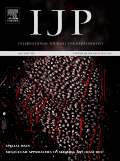
INTERNATIONAL JOURNAL FOR PARASITOLOGY
Scope & Guideline
Illuminating the Path to Understanding Parasitic Infections
Introduction
Aims and Scopes
- Host-Parasite Interactions:
Research focusing on the dynamics between parasites and their hosts, including co-evolution, infection mechanisms, and host immune responses. - Molecular and Genomic Studies:
Papers that delve into the genetic and molecular underpinnings of parasitism, including genome sequencing, gene expression, and molecular characterization of parasites. - Epidemiology and Public Health:
Studies that explore the epidemiology of parasitic diseases, their impact on public health, and strategies for control and prevention. - Ecological and Evolutionary Aspects:
Research examining the ecological roles of parasites, their evolutionary adaptations, and the effects of environmental changes on parasite dynamics. - Diagnostic and Therapeutic Strategies:
Innovations in diagnostic techniques and therapeutic interventions for parasitic infections, including drug resistance and vaccine development.
Trending and Emerging
- CRISPR and Genetic Engineering:
The application of CRISPR and other genetic engineering techniques in studying parasitic organisms is on the rise, allowing for deeper insights into gene function and potential therapeutic targets. - Environmental Impact on Parasite Dynamics:
Research exploring how climate change, habitat loss, and human activities affect parasite prevalence and transmission is increasingly highlighted, underscoring the relevance of ecological factors. - Interdisciplinary Approaches:
There is a growing trend towards integrating disciplines such as genomics, bioinformatics, and ecology in parasitological research, fostering a more holistic understanding of parasite biology. - Host Microbiome Interactions:
Emerging studies investigating the role of host-associated microbiomes in modulating parasite infections are gaining prominence, reflecting a paradigm shift in understanding host-parasite dynamics. - Drug Resistance Mechanisms:
Research focused on understanding the mechanisms behind drug resistance in parasites is becoming more prevalent, highlighting the need for innovative treatment strategies.
Declining or Waning
- Traditional Taxonomy:
The classic focus on taxonomic classification of parasites appears to be waning, as researchers increasingly prioritize molecular and genomic approaches over traditional morphological methods. - Generalist Parasites Studies:
Research on generalist parasites seems to be declining, with a shift towards understanding host-specific interactions and specialized adaptations. - Historical Parasitology:
Papers that reflect on historical perspectives or past methodologies in parasitology are becoming less common, as the field moves towards contemporary and future-oriented research.
Similar Journals
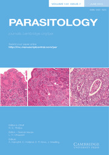
PARASITOLOGY
Exploring innovative insights into infectious diseases.PARASITOLOGY, published by Cambridge University Press, is a prestigious journal that has been at the forefront of research in the field of parasitology since its inception in 1908. This esteemed publication carries the ISSN 0031-1820 and E-ISSN 1469-8161, and its rigorous peer-reviewed articles provide insights into both fundamental and applied aspects of parasitic biology, infectious diseases, and host-parasite interactions. With a commendable impact factor, PARASITOLOGY ranks in the top quartile (Q1) for Animal Science and Zoology and holds Q2 rankings in both Infectious Diseases and Parasitology categories, indicating its significant influence and contribution to these disciplines. The journal's diverse scope allows for a broad range of research articles, reviews, and case studies, making it an essential resource for researchers, professionals, and students seeking to stay updated on the latest developments in the field. Based in the United Kingdom, PARASITOLOGY offers valuable access to critical research in an era where understanding parasitic diseases is more vital than ever, and continues to shape the future of this important scientific field.

VIROLOGIE
Fostering knowledge in the evolving world of virology.VIROLOGIE is a prominent international journal dedicated to advancing the field of virology and infectious diseases, published by John Libbey Eurotext Ltd. Since its inception in 1997, this journal has provided a platform for researchers and professionals to disseminate their findings on various aspects of virology, including the pathogenesis, epidemiology, and treatment of viral infections. Despite its current ranking in Q4 for both Infectious Diseases and Virology categories, the journal remains a valuable resource for emerging research and novel insights. The ISSN for the journal is 1267-8694, and it is based in France. VIROLOGIE is committed to upholding rigorous academic standards and fosters an inclusive scholarly community, making it an essential read for those pursuing knowledge and advancements in the ever-evolving landscape of virology. While the journal does not currently offer open access options, it continues to contribute significantly to the global discourse on viral research through its diverse range of published studies.

Parasite
Leading the charge in parasitology research and knowledge sharing.Parasite is a distinguished open-access journal published by EDP Sciences S A based in France, specializing in the multifaceted field of parasitology and related disciplines. Since its inception in 1994, it has played a pivotal role in advancing research in Agricultural and Biological Sciences, Animal Science and Zoology, Infectious Diseases, Insect Science, and Veterinary Sciences, earning a prominent place in the academic community with its 2023 rankings placing it in the Q1 category for several key areas. With an impact factor reflective of its quality and engagement, the journal fosters a collaborative environment for researchers, professionals, and students to disseminate and access high-quality studies and reviews. Operating under an open-access policy since 2013, Parasite ensures that cutting-edge research is accessible to a global audience, thereby promoting knowledge sharing and innovation in the field. For more information, please visit the journal's homepage and explore its extensive repository of articles that contribute to the understanding of parasitic interactions and their implications in health and agriculture.

KOREAN JOURNAL OF PARASITOLOGY
Bridging Knowledge Gaps in ParasitologyKorean Journal of Parasitology is a respected publication in the field of parasitology, originating from the esteemed Korean Society of Parasitology and affiliated with Seoul National University College of Medicine. Established in 1977, this journal focuses on disseminating significant research findings related to parasitic diseases, their vectors, and control measures, serving as a vital resource for researchers, medical professionals, and students alike. Although coverage in Scopus has been discontinued as of 2022, the journal remains a valuable platform for in-depth studies within the areas of Infectious Diseases and Immunology. With an ISSN of 0023-4001 and an E-ISSN of 1738-0006, the journal promotes open access to enhance academic sharing. Despite its current Scopus rankings, which place it in the 38th percentile for Infectious Diseases and 37th percentile for Immunology and Microbiology (Parasitology), it continues to contribute to the global discourse on parasitological research, encouraging collaboration and emphasizing the importance of this field in public health.
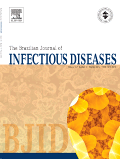
Brazilian Journal of Infectious Diseases
Empowering healthcare through innovative research and insights.The Brazilian Journal of Infectious Diseases, published by Elsevier Brazil, is a premier open-access journal dedicated to advancing research and clinical practice in the field of infectious diseases. Since its inception in 2001, this journal has been pivotal in disseminating innovative studies and reviews that inform healthcare professionals and researchers alike. With an impressive impact factor reflected by its ranking in the second quartile for Infectious Diseases and third quartile for Medical Microbiology in 2023, the journal ranks #127 out of 344 in medicine – infectious diseases and #61 out of 140 in medical microbiology, showcasing its reputable standing in the scientific community. The Brazilian Journal of Infectious Diseases invites contributions that highlight significant findings, novel methodologies, and critical reviews aimed at enhancing patient care and public health initiatives. With an international readership and a focus on pressing issues in infectious diseases, it serves as an essential platform for knowledge exchange and collaboration among scholars and practitioners across Brazil and beyond. By reinforcing the importance of open access to scientific literature, this journal not only promotes transparency but also enhances the global discourse surrounding infectious diseases.

INFECTION AND IMMUNITY
Illuminating the Path of Microbial and Immune InteractionsINFECTION AND IMMUNITY is a distinguished peer-reviewed journal published by the American Society for Microbiology, focusing on groundbreaking research in the fields of infection, immunology, microbiology, and parasitology. Established in 1971, this journal has built a robust legacy, converging years of scientific discovery with a vision towards 2024 and beyond. With an impressive Impact Factor, the journal holds significant rankings in various categories; its Q1 status in both Infectious Diseases and Parasitology underscores its high relevance and quality within the scientific community. Researchers and professionals alike will benefit from its content, as it promotes the latest advances in understanding immune responses and infectious agents, further legitimizing its place among the top quartiles of its respective fields. Access options are provided through traditional subscription models, ensuring a broad charitable dissemination of knowledge. As a pivotal resource for scholars and practitioners alike, INFECTION AND IMMUNITY stands at the forefront of microbiological and immunological research, fostering essential discourse that is crucial for advancing public health and scientific insight.
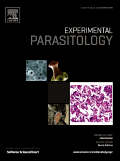
EXPERIMENTAL PARASITOLOGY
Pioneering Insights into Immunological Responses to ParasitesEXPERIMENTAL PARASITOLOGY, published by Academic Press Inc Elsevier Science, is a prominent journal in the domains of immunology, infectious diseases, and parasitology, with roots extending back to 1951. This journal, bearing the ISSN 0014-4894 and E-ISSN 1090-2449, serves as a critical conduit for sharing advancements in the understanding of parasite biology, host-parasite interactions, and the immunological responses elicited by parasitic infections. Although it currently operates under a subscription model without open access options, its rigorous scholarly content is vital for researchers and practitioners alike looking to stay informed on the latest developments and applications in the field. With a recent categorization as Q3 in key scientific categories, including Infectious Diseases and Parasitology, and a Scopus ranking solidifying its relevance, EXPERIMENTAL PARASITOLOGY is an essential resource for those committed to advancing knowledge and solutions to parasitic diseases.

JOURNAL OF HELMINTHOLOGY
Connecting researchers to combat helminth challenges.JOURNAL OF HELMINTHOLOGY, published by Cambridge University Press, has been a pioneering platform for the dissemination of research in the field of helminthology since its inception in 1923. With a notable focus on animal science and parasitology, this journal holds a distinguished position in the academic landscape, attaining Q2 status in Animal Science and Zoology and Q3 in both Medicine (miscellaneous) and Parasitology as of 2023. The journal aims to advance the understanding of helminth parasites, their epidemiology, and the myriad implications for human and animal health. Access to this esteemed journal is currently non-open, enabling a curated and high-quality review process that enhances the academic rigor seen in its publications. Residing in the United Kingdom, the JOURNAL OF HELMINTHOLOGY serves as a vital resource for researchers, professionals, and students alike, fostering a community dedicated to combating the challenges posed by helminth infections globally. With its rich history and commitment to excellence, the journal continues to contribute significantly to the fields of parasitology and beyond.
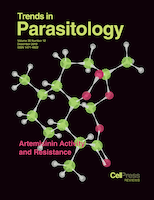
TRENDS IN PARASITOLOGY
Bridging knowledge gaps in infectious disease science.TRENDS IN PARASITOLOGY is a premier academic journal published by CELL PRESS, focusing on the dynamic field of parasitology and infectious diseases. With an ISSN of 1471-4922, this esteemed journal is recognized for its high impact within the research community, boasting a Q1 ranking in both the Infectious Diseases and Parasitology categories as of 2023. This places it among the top-tier journals in the field, as evidenced by its remarkable Scopus rankings, where it ranks #3 out of 79 in Parasitology and #29 out of 344 in Infectious Diseases. Spanning over two decades of scholarly contributions from 2001 to 2024, TRENDS IN PARASITOLOGY emphasizes the latest advancements, challenges, and innovative methodologies in parasitology, making it an invaluable resource for researchers, healthcare professionals, and students alike. With an increasing focus on open access initiatives, this journal not only promotes widespread dissemination of knowledge but also encourages collaboration across the global scientific community. Whether you are investigating novel interventions, exploring parasite evolution, or understanding host-pathogen interactions, TRENDS IN PARASITOLOGY remains at the forefront of research, driving forward the understanding of parasitic diseases.
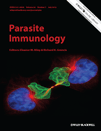
PARASITE IMMUNOLOGY
Advancing the Frontiers of Host-Parasite Research.PARASITE IMMUNOLOGY, published by Wiley, is a leading journal in the field of immunology and parasitology, with an ISSN of 0141-9838 and E-ISSN of 1365-3024. Since its inception in 1979, it has played a pivotal role in advancing our understanding of host-parasite interactions, immunological responses to parasitic infections, and the mechanisms of immunological resistance. The journal is adeptly positioned within the academic community, currently holding a prestigious Q2 ranking in Parasitology and a Q3 ranking in Immunology for 2023, indicating its significant influence and relevance. Its comprehensive scope attracts a diverse readership, contributing to the discourse surrounding novel therapeutic approaches and emerging challenges in parasitic diseases. With a consistent convergence of research until 2024, PARASITE IMMUNOLOGY is an essential resource for researchers, professionals, and students seeking to deepen their knowledge and foster collaboration in these dynamic fields. Although it is not an open-access journal, the insights shared within its pages are invaluable for shaping future research trajectories.